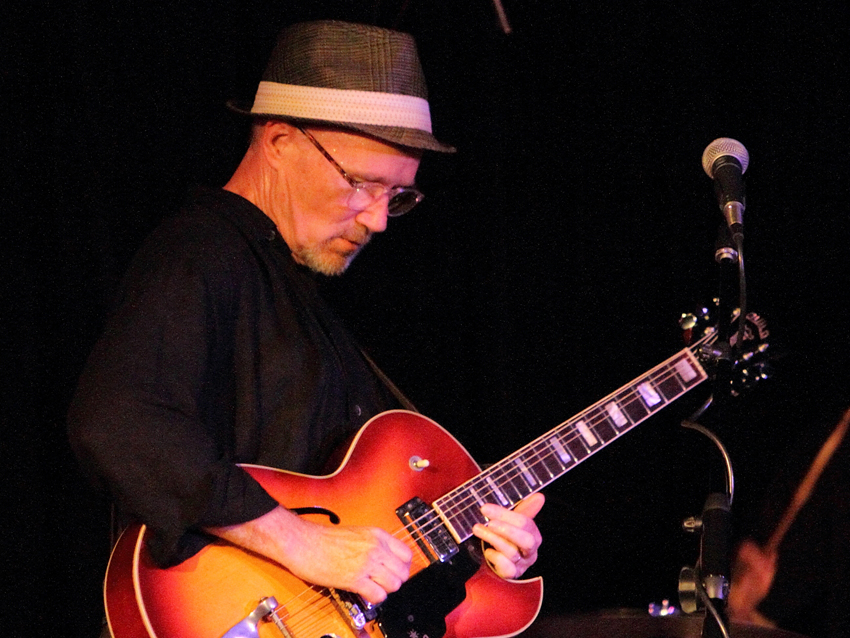
Marshall Crenshaw picks 10 essential guitar albums
As you might expect from a guy like Marshall Crenshaw – singer-songwriter, rock historian, actor, author, radio host and tasteful, erudite guitar stylist – his record collection is a pretty serious one, stretching back to the earliest days of rock 'n' roll.
"It is pretty big, but I like to think that it's reasonably under control," Crenshaw says. "There was a guy in my neighborhood who owned a bookstore, and he had books stacked up everywhere, even in the bathtub. My house isn’t like that. I try to make sure that things don’t run amuck."
While he has no plans to ditch his vinyl albums and CDs, Crenshaw, like millions of music fans, has transferred much of his collection onto his iPhone – which made the process of selecting 10 essential guitars albums a relatively easy undertaking. "It's like I have the entire history of recorded music right in my hand," he marvels. "I can experience all of it right now, and if I can have things that quickly – anywhere, anytime – that means it's all contemporary."
Crenshaw describes himself as a lover of "tones and textures," who favors guitarists who push the limits of sonic boundaries over more traditional technical virtuosos. "If it’s a mediocre record but the guitar playing is amazing, I probably wouldn't embrace it 100 percent," he says. "There are some records that are geared towards guitar players, but they focus on the dexterity. I need more than that – great songs, a cool vibe, exciting sounds. It can't just be... tricks."
He pauses, then adds, "I still feel like there's a lot more to be said with the guitar, too. It's never all done. If you can play, if you follow your own instincts and don't try to sound like somebody else, you're gonna do something different. There's always something exciting about that."
On the following pages, Crenshaw runs down his picks for 10 Essential Guitar Albums. The new Marshall Crenshaw EP, Driving & Dreaming, is available on Amazon and via Marshall's online store.
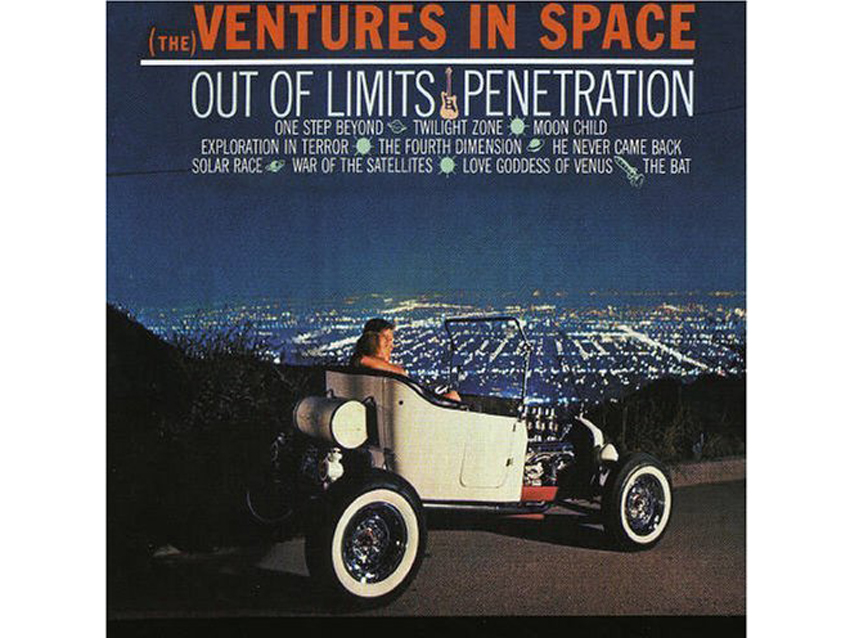
The Ventures - (The) Ventures In Space (1964)
“I had a couple of Ventures records before I got this one. That’s the way it was back then – people just had Ventures records. If you went to somebody’s house, there were always one or two Ventures albums sitting around.
“They were a huge band, almost ubiquitous for a while. And for kids who liked rock guitars, this was the band you listened to. Nowadays, everybody cites the same artists as being the formative ones – Jimmy Page, Jeff Beck and guys like that – but a few years before, it was The Ventures. They were just everywhere.
“Ventures In Space was something of a left turn. On the cover, instead of their Fenders were these other weird guitars nobody had ever heard of called Moserites. That blew people’s minds right away. And the sound was really different: All of a sudden, they had a really distinctive, in-your-face, attacking kind of sound, way more so than what they got with their Fenders. It was different, it was surprising, and it worked really well.
“The music’s just so good on this record. What The Ventures could do with electric guitars and steel guitars was absolutely incredible. Every so often they’d shove something down a Leslie speaker – very basic technology – and they made it sound cool and futuristic. It still sounds fresh, too.”
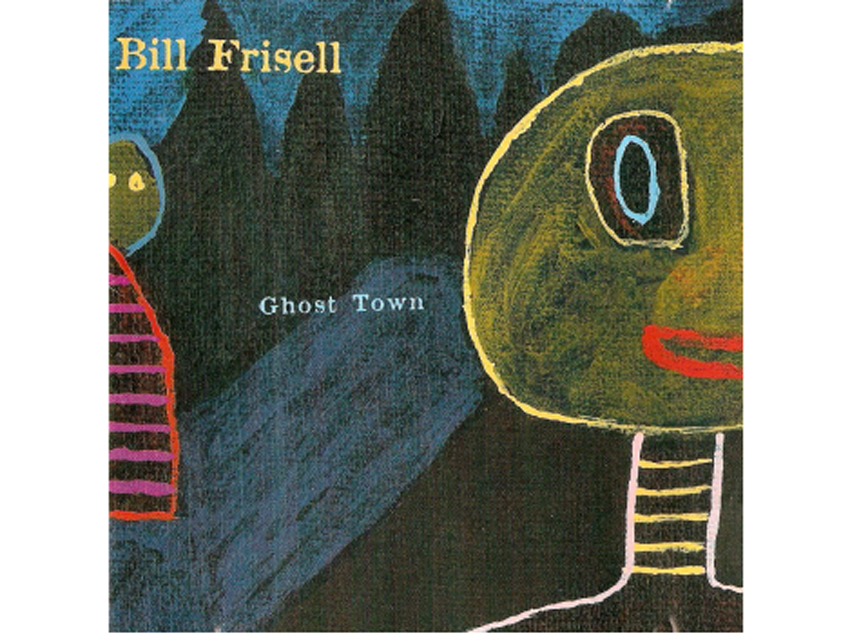
Bill Frisell - Ghost Town (2000)
“I’ve become a Bill Frisell fan during the last 15 years or so. I think the first record that he’s on that really got to me is Going Back Home by the Ginger Baker Trio, which also features Charlie Hayden. There's a lot of great playing on that one.
“This record, Ghost Town, is really cool, It’s short guitar instrumentals – jazzy rock music kind of. Bill has a very beautiful style, and he's also got a lot of musical knowledge, much more than your average rock guitarist. More important, he's a really great communicator and knows how to play for the people. He can take things pretty much anywhere – there’s a wide amount of knowledge going on here – but he always seems to remember that people are listening.”
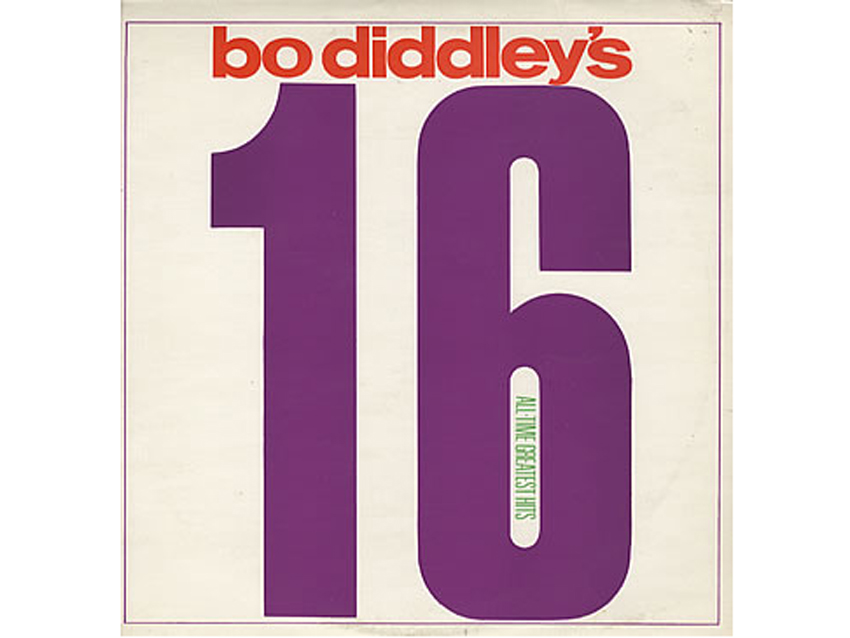
Bo Diddley - Bo Diddley's 16 All-Time Greatest Hit (1965)
“I sometimes heard Bo Diddley on the radio when I was growing up. I remember a few of his records being played on jukeboxes in Detroit, here and there. I immediately fell in love with his music, his style, his guitar sounds – those are some of the best tones I’ve ever heard.
“It’s him and another guitarist named Jody Williams, who does the blues leads on the tracks. The two of them played together beautifully. And again, it’s the tones. It’s like you died and went to guitar heaven. I wore out two copies of the greatest hits record.”
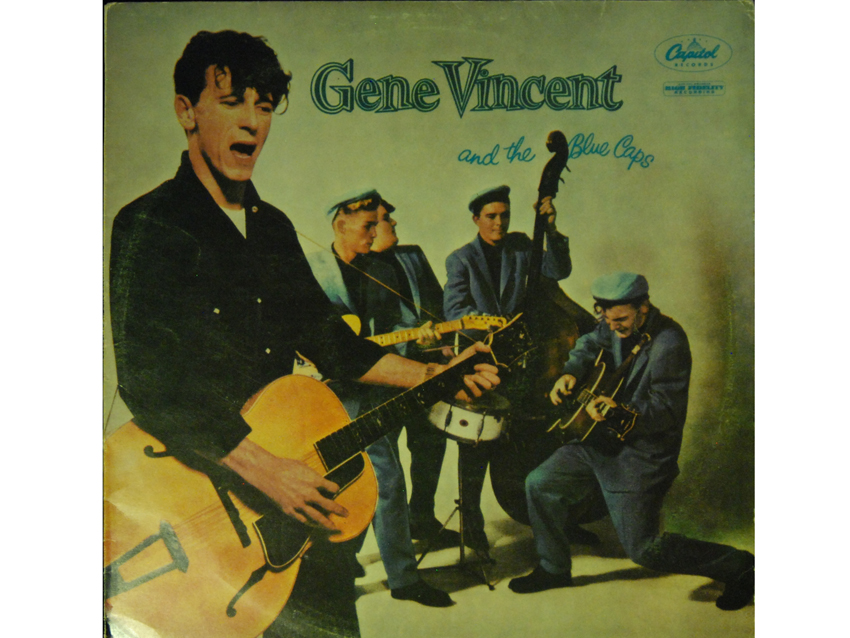
Gene Vincent And His Blue Caps - Gene Vincent And The Blue Caps (1956)
“Cliff Gallup was Gene Vincent’s lead guitarist. Cliff came from a jazzy, kind of western swing background, but he played rock ‘n’ roll like a wild man. Jeff Beck idolizes him. He influenced a lot of important players.
“This is the band’s second album, and it's a real source of great guitar tones. They went into the studio, screamed and yelled and went nuts, basically. The guitar is berserk, just off the dial for back then. If you want to hear some raw, wild guitar, this is the record.”
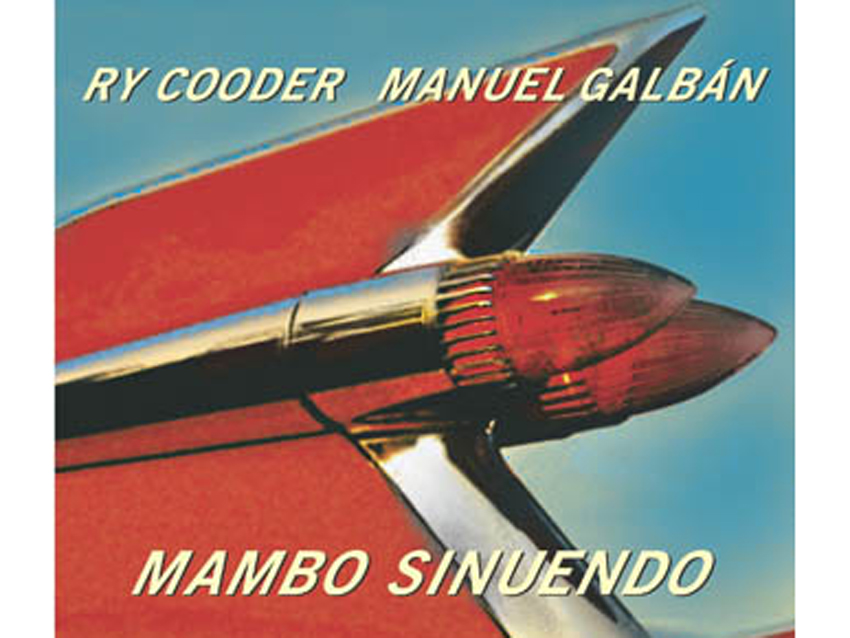
Ry Cooder/Manuel Galban - Mambo Sinuendo (2003)
“This is a great record. You have Jim Keltner on drums and a bass player whom I don’t know, but he has an unbelievable sound. I love what they’re doing here.
“I love the whole album, but there’s one track, their version of Secret Love, the old Doris Day tune, that’s really exceptional. The first part of it Ry Cooder by himself, and it’s one of the most beautiful things I’ve ever heard. A couple of years ago, I sat down and decided that I was going to learn it. It took about a day and a half to really get it and understand it. Such a lovely piece of music.”
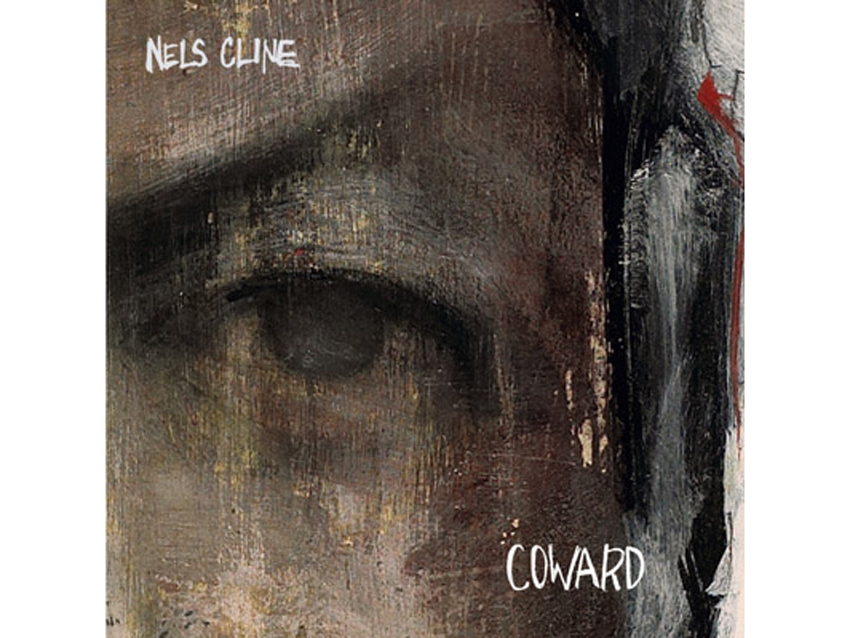
Nels Cline - Coward (2009)
"Nels Cline is a brilliant person, a fantastic composer and a really great guitarist. He's a member of Wilco, but that isn't how I first came to know him. I actually heard about him years ago, before he joined Wilco, from my friend Wayne Kramer. A record of Nels’ that I’m in love with is one called Coward. This is music that you can lose yourself in.
“What I didn’t know until just about five minutes ago is that this record is Nels’ tribute to another guitar player named Rod Poole, who was murdered by some asshole. The title refers to the murderer.
“Strangely enough, I didn’t know any of that the whole time I’ve been listening to it. I’ve played tracks from it on my radio show for the past couple of years, completely unaware of the backstory. But the record is fantastic; it’s just a beautiful outpouring of emotion. Anybody who loves electric guitar music will dig it.”
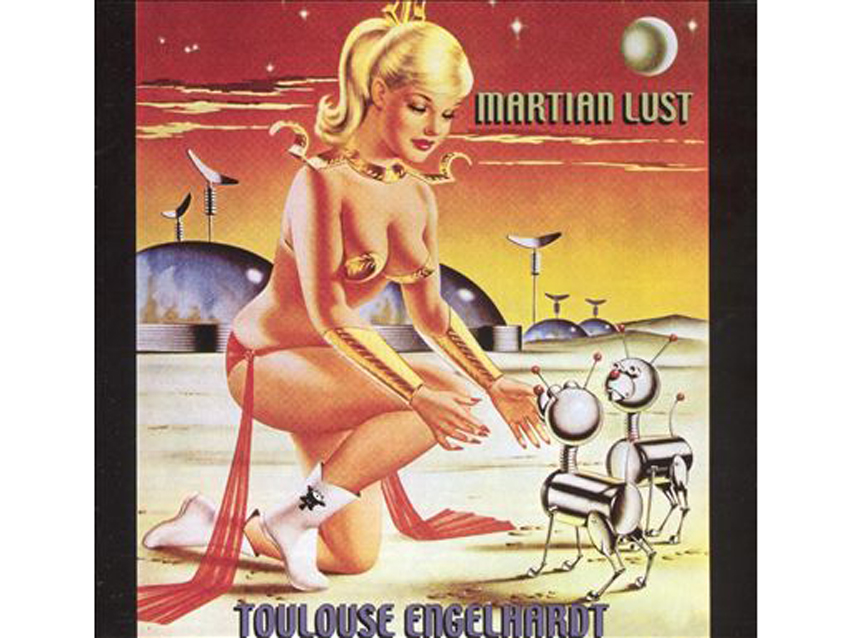
Toulouse Engelhardt - Martian Lust (2006)
“Toulouse sometimes calls himself ‘the Maestro of the Moserite.’ It’s all Moserite electric guitar on this album. If you’re a fan of the sound of Moserites, this record is a real feast. It’s a lot of fun to listen to.
“Toulouse has a great sense of humor. He’s got one of those mad scientist kind of minds. The music is entertaining, but it’s also jaw-dropping guitar-wise. He’s very smart and creative, and of course, there’s the Moserite tone – you can’t beat that.”
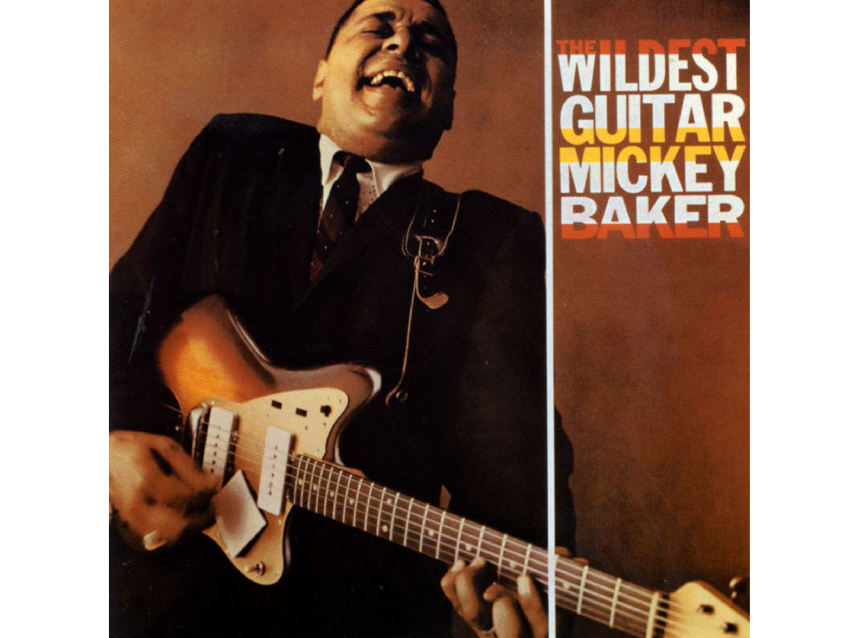
Mickey Baker - Wildest Guitar (1959)
“Many years ago, I was over at Matthew Sweet’s house. We were hanging out and playing music, and as I was leaving I noticed there was an album sitting there called the Wildest Guitar. Needless to say, I was intrigued.
“I already knew who Mickey Baker was because, when I was a kid, my cousin had the single Love Is Strange by Mickey & Sylvia. I’ve loved that record all my life. Matthew told me that Robert Quine recommended Wildest Guitar to him, and I figured that if Robert Quine told him to listen to it, hey, I should hear it, as well.
“I bought it and really dug it. It sort of describes itself – it’s the wildest guitar. [Laughs] He was one of the first users of the Les Paul, but on this record he’s pictured with a Jazzmaster. He really leans into it and sounds like he’s trying to tear it apart. It’s mostly standard tunes, but they’re rock ‘n’ roll interpretations. Great stuff.”
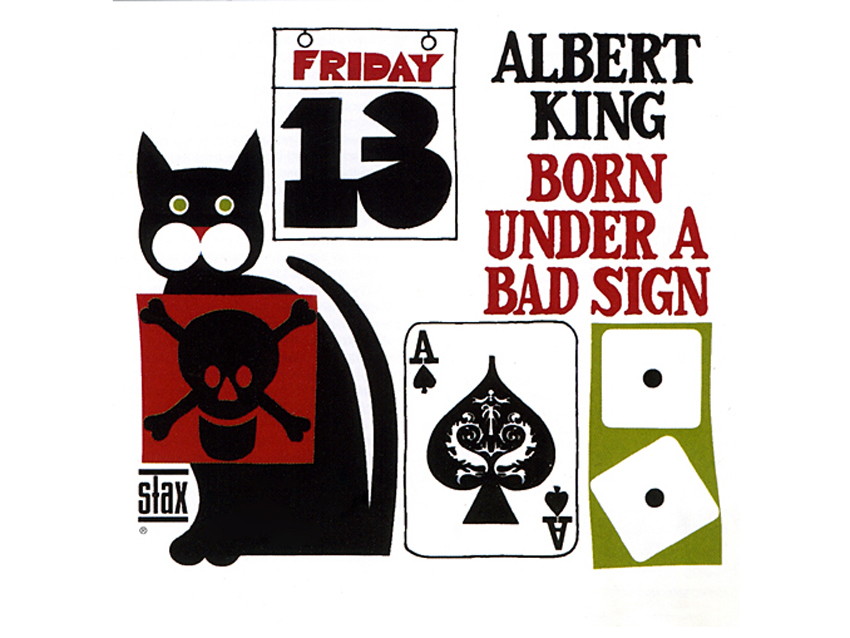
Albert King - Born Under A Bad Sign (1967)
“I used to read Down Beat magazine as a kid – well, I still do read it – and I remember an interview with Eric Clapton in which the journalist mentioned an Albert King record sticking out of Clapton’s suitcase on the bed. Soon after, I was on vacation with my parents, and I saw a copy of Born Under A Bad Sign in the cutout bin in a drugstore. It was only 50 cents, so I bought it.
“About seven of the tracks are with the Stax house band. I always loved hearing Al Jackson playing the drums on just about anything, and the combination of Al with Albert King – his tone and his style – is pretty remarkable. You just can’t not love it.
“The guitar solo on Oh Pretty Woman is one that Eric Clapton played note for note on Strange Brew. If you listen to Clapton do that solo, he plays it exactly the same way, and he does it deliberately. I saw him talk about it on a TV show, and he said that he wanted to say to the world that this is the music he was into.”
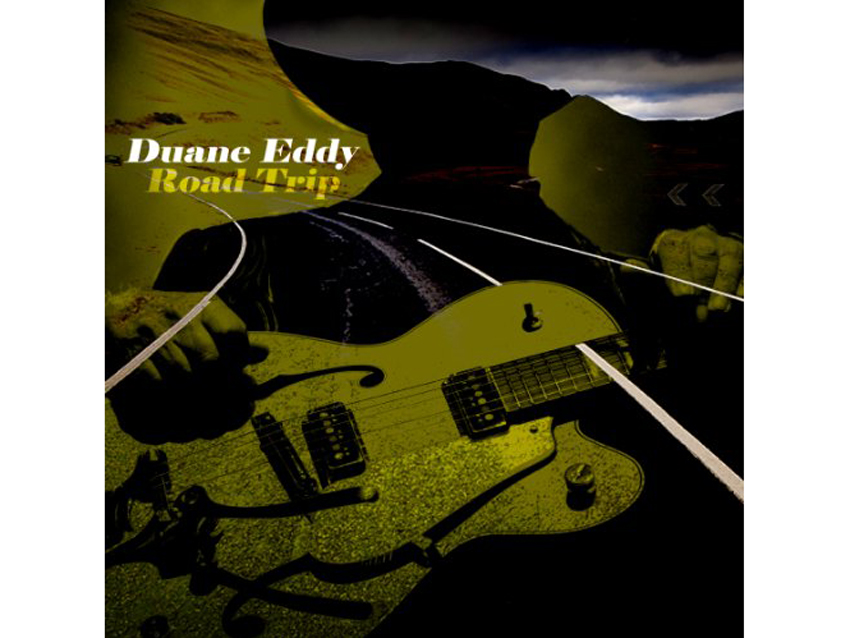
Duane Eddy - Road Trip (2011)
“Duane Eddy made an album with an English guy named Richard Hawley. Richard is pretty well known in England – a younger guy, probably in his mid-30s. He’s also a guitar player, and he’s into all of these records that I’ve been mentioning.
“I’ve been hearing Duane Eddy my whole life. He’s got a lot of great, magical records that really hold up. This one is new and it sort of took me by surprise. It’s Duane doing his thing, but his tone is captured exceedingly well. The songs are really nice; some are ballad-y and nocturnal, with really beautiful melodies.
“Duane grew up in Arizona and then moved to Nevada, and the record totally captures that wide-open-spaces sound of the desert. The feeling of being lost in America, the vistas – it’s all right here.”
Joe is a freelance journalist who has, over the past few decades, interviewed hundreds of guitarists for Guitar World, Guitar Player, MusicRadar and Classic Rock. He is also a former editor of Guitar World, contributing writer for Guitar Aficionado and VP of A&R for Island Records. He’s an enthusiastic guitarist, but he’s nowhere near the likes of the people he interviews. Surprisingly, his skills are more suited to the drums. If you need a drummer for your Beatles tribute band, look him up.
